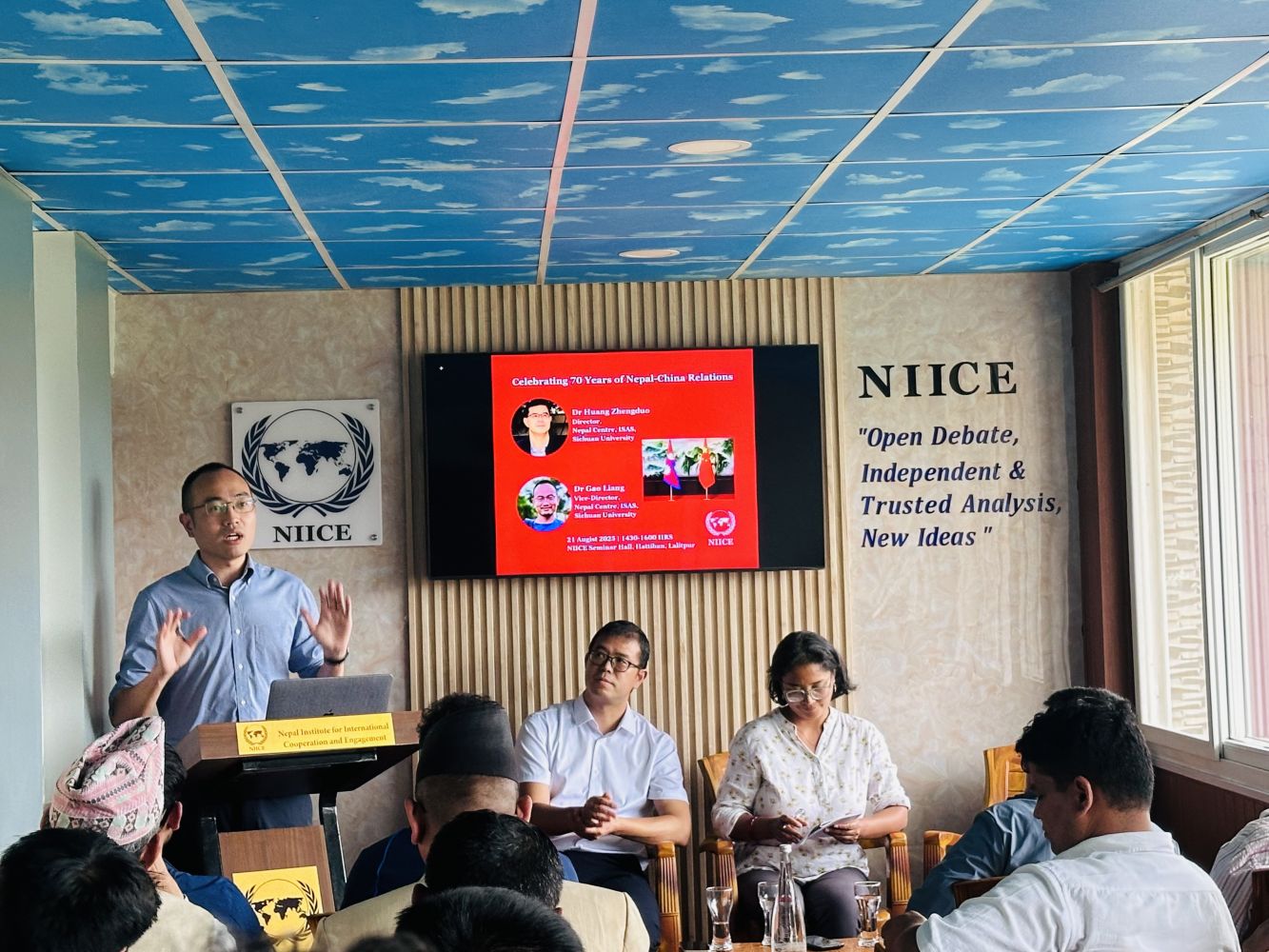
SATV Kathmandu, August 22, Lalitpur: The Nepal Institute for International Cooperation and Engagement (NIICE) organized a seminar on “70 Years of Nepal–China Relations” on 21 August 2025 at the NIICE Seminar Hall.
The seminar featured distinguished speakers: Dr. Huang Zhengdou, Director, Nepal Study Centre, Institute of South Asian Studies (ISAS), Sichuan University, China, and Dr. Gao Liang, Vice Director, Nepal Study Centre, ISAS, Sichuan University, China. The session was chaired by Dr. Lila Nyaichyai, Head of the Central Department of Library and Information Science and an expert in International Relations. The program brought together academics, researchers, and policymakers to reflect on seven decades of Nepal–China relations and discuss prospects for the future.
Professor Huang Zhendou highlighted that China–Nepal bilateral trade volume has risen rapidly in recent years under the Belt and Road Initiative (BRI). However, he also noted that the persisting trade imbalance remains a major challenge in economic cooperation. He further emphasized the need to strengthen cooperation with Nepalese local enterprises to achieve high-quality and sustainable development under the BRI. Referring to the China– Nepal Friendship Industrial Park, which was envisioned to create 100,000 jobs and transform Nepal’s industrial sector, he pointed out that the project has faced local protests over low compensation for land acquisition and has seen little progress in the past decade. Professor Huang stressed that fostering positive interaction between Chinese and Nepalese enterprises is essential for realizing the full potential of BRI projects.
Dr. Gao Liang emphasized that the dynamics of security, environment, and competition with other countries are central to China–Nepal cooperation. He underscored that domestic politics plays an important role in China’s development policy, and Nepal holds strategic importance for China not only in terms of security but also in fostering regional development and connectivity. He pointed out China’s genuine commitment to support Nepal’s growth, with the example of hydropower electricity trade, which could help Nepal generate income and enhance energy cooperation. He further stressed the need for diversified external connectivity for both countries and concluded with the affirmation of the enduring bond: “Long live China–Nepal friendship.”
On the question of the recent agreement of India–China to trade from the Lipulekh pass, Dr Gao emphasized that China takes no side and wishes for the issue to be resolved through dialogue between Nepal and India, noting that the current move was made by working with the status quo. He stated, “In my perspective, even between India and China the border is far from being fully demarcated, agreements like this one will be of little consequence when sitting for the final agreements on border demarcation.”



















